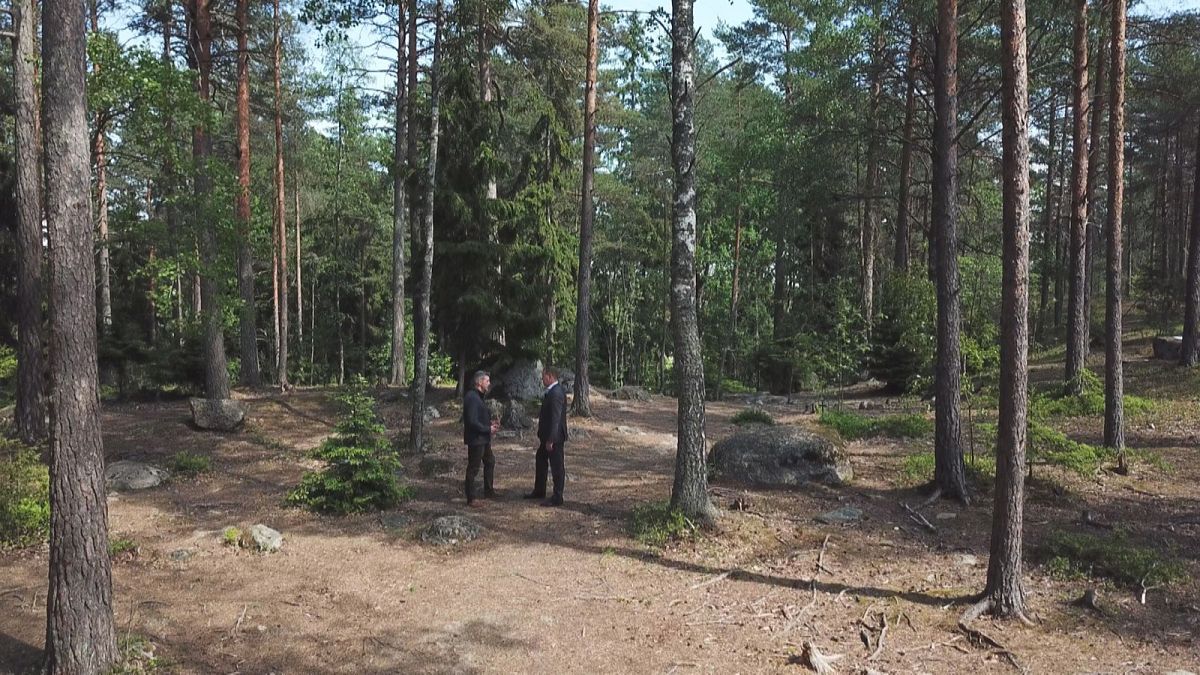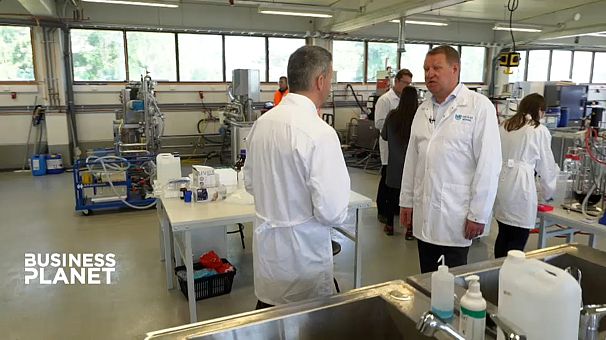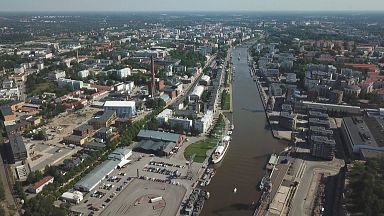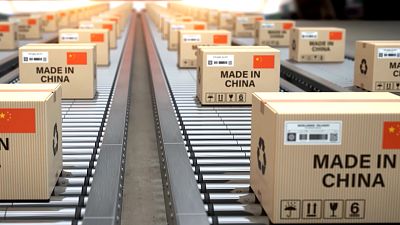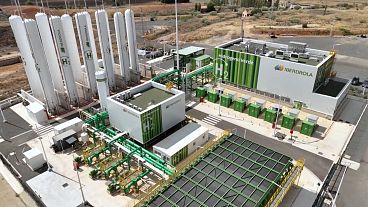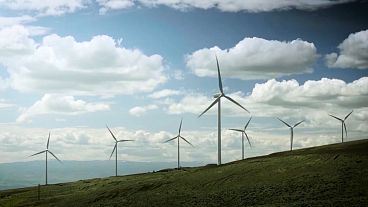Business Planet travels to Turku in Finland in search of what is known as Europe's bioeconomy to see how firms with bright ideas are making a positive difference to our future with sustainable products.
Business Planet travels to Turku in Finland in search of what is known as Europe's bioeconomy to see how firms with bright ideas are making a positive difference to our future with sustainable products.
From new bio-based materials to cleaner energy, innovative technologies will be key if we are to reduce our dependence on fossil fuels and become more sustainable. To accelerate this transition, the European Union has invested nearly 4 billion euros into what is known as Europe's bioeconomy, an area that encompasses many economic sectors including agriculture, fisheries, forestry, paper, bioenergy to name a few.
Getting the good from wood
Located just outside the Finnish city of Turku, MetGen’s mission is all about getting the good from wood. Founded in 2008, the firm makes highly-active industrial enzymes - natural catalysts that speed up chemical reactions. This is vitally important for industry, as enzymes don't just save time, they also crucially save energy, and as a consequence money.
"Our enzymes are specifically designed to withstand harsh industrial conditions, that means we are empowering, various industries, from pulp and paper to tyre manufacturing, to extract the most out of bio-mass,” Alex Michine, MetGen's CEO.
By mixing its enzymes with lignin, a material found in trees that gives wood its strength and rigidity, MetGen can also make more eco-friendly products.
"We're mixing lignin together with our enzymes to produce materials to replace fossil-based products like this sustainable foam which is used to insulate houses," explains the company's Sales Director Sami-Pekka Rantanen.
MetGen insists the new bio-based foam is not only better for the environment it is also more efficient for insulating houses compared to fossil-based products. In addition, the company is working with some of the biggest players in the tyre and drinks industry to develop more sustainable products.
High hopes
The hope is that wood and other bio-based materials will be used in this way to create better products for the environment in the future, replacing the plastics, fuels and fertilisers that are currently fossil-based. No surprise then that the bioeconomy is a top priority for Europe – a sector that already employs more than 18 million people with another 1 million jobs expected to be created by 2030.
Funding for a more eco-friendly future
The European Union has already pumped nearly 4 billion euros into Europe's bioeconomy via its Horizon 2020 programme - a figure that's due to rise to 10 billion in the coming years. This is being channelled through an initiative called the Bio-based Industries Joint Undertaking, a partnership between the EU and bio-based industries in the private sector.
MetGen's CEO Alex Michine said the support network and funding provided by the European Union was crucial for the development of his company.
"The financial support helped our company to grow from the startup phase to a fully commercial SME. but what is even more important is to have access to the wide collaboration network, including industrial players, to understand what consumers really want."
He adds: _"Our vision is to become an integral part of the European circular bioeconomy. And we truly believe that everything that can be done from oil can be done from wood."_
Johanna Buchert is the President and CEO of the Natural Resources Institute Finland (LUKE). Business Planet spoke to her to get more insight on Europe's bioeconomy and the BBI-JU, an organisation set up by the EU in partnership with Europe's bio-based industries.
What is the Bio-based Industries Joint Undertaking and how does it work?
“The BBI Joint Undertaking funds research. It's an EU instrument, a public-private partnership where the industry is paying most of the part and the EU Horizon programme is paying the other part.”
If I'm a company and I'm interested in becoming part of the BBI JU, what should I do?
“You should connect yourself to research institutes and universities where the research ideas are lying and then together with them go into the activities of the Bio-Based Industries Joint Undertaking. But then go to the networking platforms, there are a lot of opportunities where you can really interact with different stakeholders in the value chain; industrial enterprises, research institutes, universities. And it's there you can really generate contacts.”
How crucial is this?
"It is very crucial to invest in research, but it's also very crucial that the industrial end users are within the research. This is very crucial and this is where the BBI Joint Undertaking is the key player. Industry has been there creating the research need agenda and then the research is answering those needs and putting all this together, I think this is the way how we boost industry in Europe."
These technologies, do they offer us hope for the future?
"We want to transform from a fossil-based economy to a bio-based economy. This is our target and Europe has very ambitious goals there. Bio-based raw materials offer us the possibility to replace, at least partially, the fossil-based economy, so if we generate concepts where we can really create products that can replace fossil-based products that has a climate change impact. It has a very very good impact on the world because our resources are scarce and there are boundaries in the resources so we really need to invest in research and put that into industrial scale and I think this is where the BBI Joint Undertaking is the key player."
If I'm a small bio-tech firm and I'm interested in this, who should I contact?
"Either go to the Bio-based Industries webpage or contact the research institutes or university in your country and then try to build up these ideas further."
What is the bioeconomy?
In a world of finite biological resources, we need innovation to make our economy more sustainable and lower its dependence on fossil fuels.
The bioeconomy can turn algae into fuel, recycle plastic, develop biodegradable plastic materials, convert waste into new furniture or transform industrial by-products into bio-based fertilisers.
It is one of the EU’s largest and most important sectors that already accounts for 8% of the EU’s workforce. It has the potential to generate 1 million green jobs by 2030.
The EU supports the bioeconomy with research and innovation funding. It has already invested €3.85 billion under the Horizon 2020 programme. €10 billion is planned under the Horizon Europe programme that will start in 2021.
To support the development of sustainable and competitive bio-based industries in Europe, the EU has also set up the Bio-Based Industries Joint Undertaking, a partnership between the EU and bio-based industries.
The EU also plans to establish a €100 million Circular Bioeconomy Thematic Investment Platform to bring bio-based innovations closer to the market and de-risk private investments in sustainable solutions.
Useful links
